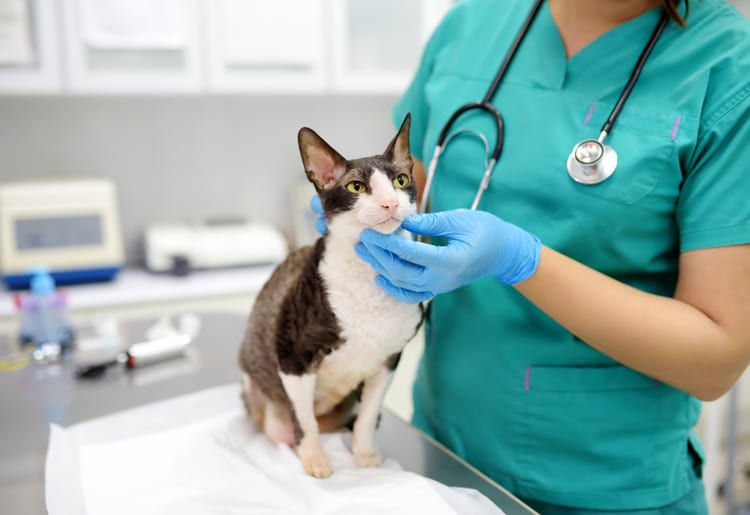
This proactive approach helps keep our animals healthy, saves us money, and reduces stress by addressing potential health problems before they escalate.
By exploring options from the best pet insurance providers, you can support your pet’s health journey. So, how can investing in preventive care now lead to a healthier and longer life for your pet?
What is Preventive Care for Pets?
Preventive care for pets includes various routine services designed to maintain their health and catch any potential issues early on. This typically involves regular vet check-ups, vaccinations, screenings, and other routine treatments that help keep your pet in tip-top shape.
Why Preventive Care Matters
The long-term benefits of preventive care are significant. Regular check-ups allow veterinarians to detect health issues before they become serious, ultimately extending your pet's life expectancy.
For example, catching dental disease early can prevent more severe health problems down the line.
Cost-Effectiveness of Preventive Care
Investing in preventive care may seem like an added expense, but it's a smart financial strategy. You can avoid costly emergency treatments and complex medical interventions by catching potential health issues early.
Regular check-ups, vaccinations, and proactive health monitoring can save thousands of dollars in long-term veterinary expenses, making preventive care a financially wise choice for responsible pet owners.
Key Components of Preventive Care
Here are some essential aspects of preventive care that every pet owner should consider:
- Routine veterinary check-ups: Regular vet visits are crucial for monitoring your pet's health and catching issues early. During these check-ups, your veterinarian will assess your pet’s overall condition, perform necessary tests, and provide guidance on maintaining their health.
- Vaccinations and parasite control: Keeping your pet up-to-date on vaccinations is vital for preventing common diseases. Additionally, parasite control—such as flea, tick, and heartworm prevention—can help protect your pet from serious illnesses related to these pests.
- Dental care: Oral health is often overlooked but is essential for preventing periodontal disease and other health issues associated with poor dental hygiene. Regular dental cleanings and at-home dental care can keep your pet’s mouth healthy.
- Nutrition and weight management: A balanced diet tailored to your pet's specific needs is crucial for preventing obesity and related health problems like arthritis or diabetes. Working with your veterinarian to create a weight management plan can help keep your pet fit and healthy.
- Grooming and skin care: Regular grooming keeps your pet looking good and helps prevent matting, skin infections, and other dermatological issues. Bathing, brushing, and checking for unusual lumps or bumps should be part of your routine.
Age-Specific Preventive Care
Different stages of life require different approaches to preventive care:
- Puppies and kittens: Early vaccinations are essential for young pets. Socialization during this period is also critical in helping them grow into well-adjusted adults. Establishing healthy habits early on sets the foundation for a lifetime of good health.
- Adult pets: For adult pets, continued routine care is vital. Monitoring for common age-related issues like arthritis becomes increasingly important as they age. Maintaining a healthy weight is crucial during this stage as well.
- Senior pets: Senior pets often require frequent vet visits to monitor conditions such as kidney disease, diabetes, or cognitive dysfunction. Joint care supplements may also be beneficial as they age.
Preventive Care and Mental Health
Preventive care isn't just about physical health; it also encompasses mental well-being:
Socialization and behavior training: Early socialization and training are key to preventing behavioral issues later in life. A well-socialized pet is generally happier and less anxious in new situations.
Mental stimulation and enrichment: Providing mental exercises—like toys and puzzles—contributes significantly to cognitive health. Activities can also help prevent issues like anxiety or depression in pets.
How Pet Insurance Can Support Preventive Care
One way to make preventive care more accessible is through pet insurance preventative care plans:
Coverage for Routine and Preventive Services
These plans typically include routine services like vaccinations, wellness exams, and dental cleanings, helping pet owners manage the financial aspects of maintaining their pet's health.
By alleviating the financial burden of preventive treatments, these insurance options make it easier for pet parents to provide consistent, high-quality healthcare throughout their pet's life.
Discounts and Benefits
Some insurance providers, like Spot Pet Insurance, offer additional benefits like spaying/neutering and parasite prevention in its Platinum preventative care package. This can encourage you to stay on top of your pet’s healthcare needs without breaking the bank.
Choosing the Right Pet Insurance Plan
Selecting the ideal pet insurance plan requires careful consideration of coverage details, reimbursement levels, and wellness benefits. Focus on finding a plan that matches your pet's specific health needs, considering their age, breed, and potential medical risks.
The Long-Term Benefits of Preventive Care
Investing in preventive care offers numerous long-term benefits, such as:
- Better quality of life: Preventive care helps pets maintain an active lifestyle by addressing potential health issues before they become serious problems.
- Early detection of serious health problems: Catching diseases early allows for timely treatment before they escalate into more significant concerns or become expensive to manage.
- Peace of mind for pet owners: Knowing you’re doing everything possible to keep your pet healthy provides reassurance that you’re making the right choices for their well-being.
Bottom Line
By investing time and resources into a preventive care routine—backed by the right pet insurance coverage—you’re setting the stage for a happier future together. Regular vet visits combined with proactive measures will lead to better outcomes and peace of mind, knowing you’re giving your pet the best life possible.

